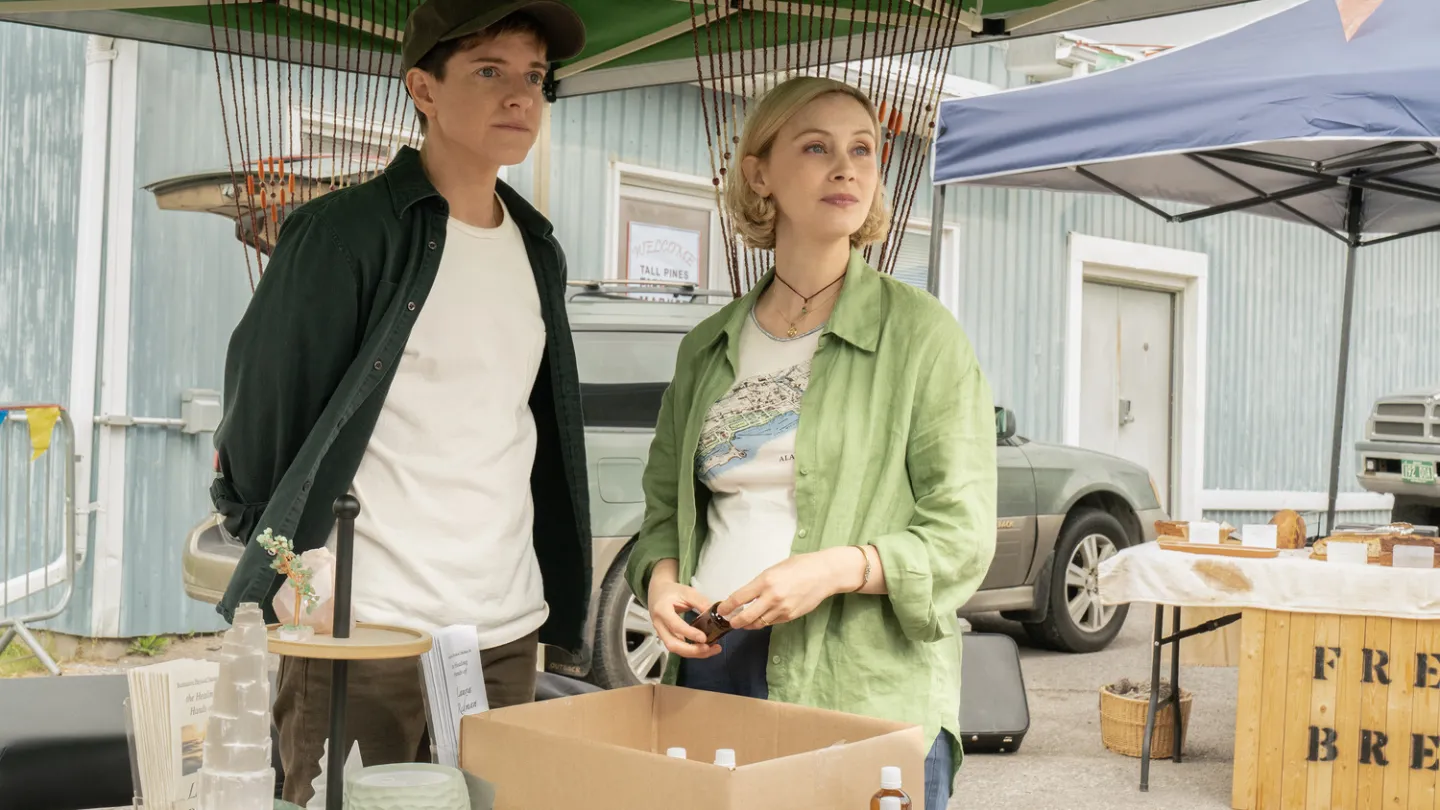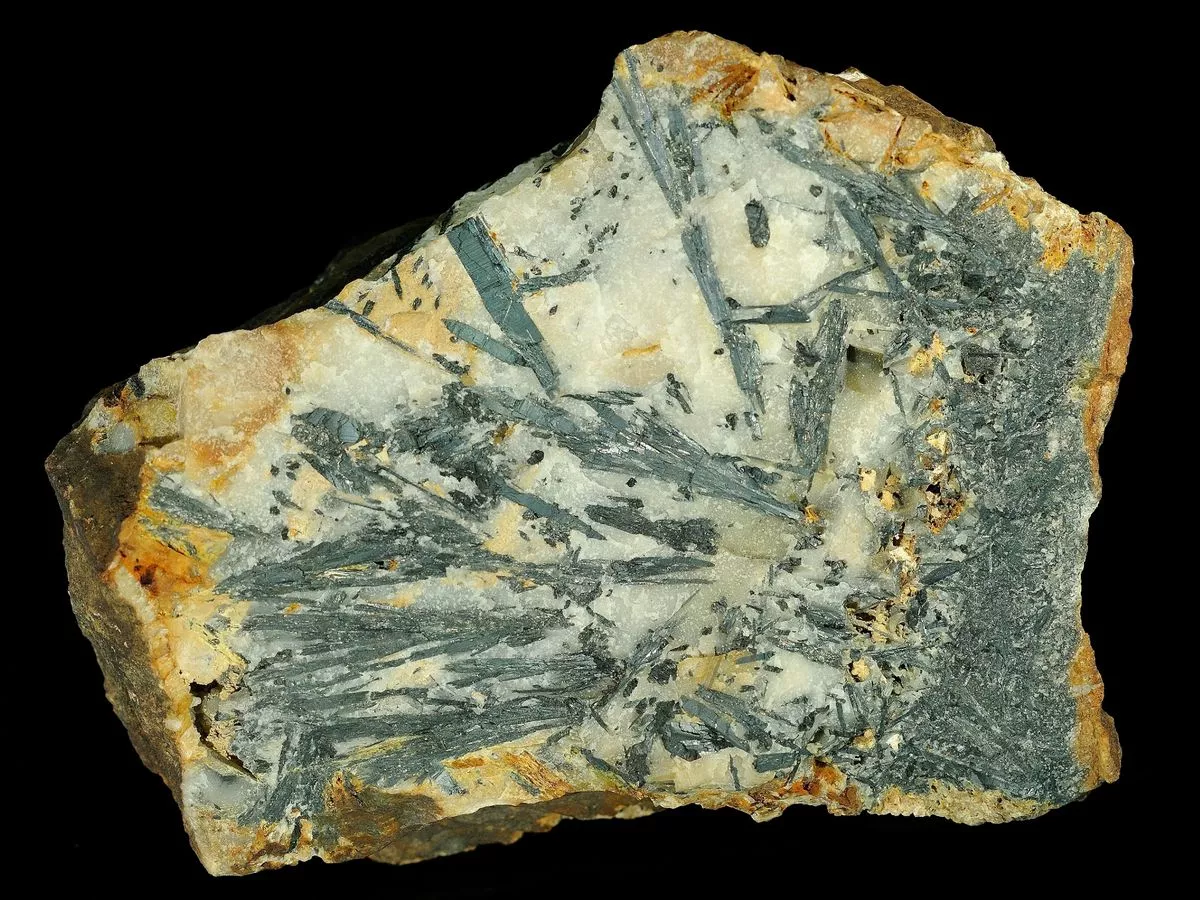
First, Netflix received rave reviews and an impressive haul of Emmys for Adolescence, an eerie and unsettling four-part limited series that posited that kids today, young men in particular, are not alright. It offered no particular solution to this crisis, which made it even more unsettling.
Get ready for the discomfort to continue with Netflix’s Wayward, an eerie and unsettling eight-part limited series that posits that the industrial complex built around “fixing” troubled kids, of all genders, might be even more broken than the kids themselves. It veers off into genre-bending oddness so immediately and, ultimately, so completely that it offers no particular solution to this crisis, which I suppose makes it even more unsettling.
Wayward marks an unexpected storytelling swerve for series creator and star Mae Martin, who previously co-created and starred in Netflix’s bittersweet two-season rom-com Feel Good, as well as a 2023 stand-up special.
While there are small traces of overlap with their previous semi-autobiographical semi-comedies and Martin’s dryly comic tone is employed periodically, Wayward is not, exactly, a comedy. You can laugh at things in it, but that laughter will rarely make you, pun intended, feel good.
It is, by design, odd and off-putting, a portrait of unfulfilled alienation more than a straightforward thriller or social-issue drama. It’s easy to watch Wayward while working your way through a checklist of slightly similar shows, but what it ends up being isn’t entirely like any of them. It’s hard to exactly say, in fact, what Wayward ends up becoming, which is probably both my favorite and least favorite thing about it. Wayward is a pupal show, a show about transition and in transition, and if you demand a butterfly or even a moth to fully emerge, you’ll be disappointed.
Wayward begins with a pair of parallel narratives that, thankfully, don’t wait long to intersect.
Abbie (Sydney Topliffe) and Leila (Alyvia Alyn Lind) are a pair of troublemaking teens in 2003 Toronto. Leila, emotionally wounded by her older sister’s death, enjoys recreational drugs and skipping class with Abbie, who is chafing against her controlling parents. When the girls’ latest low-key misadventure lands them in trouble, Mr. Turner (Patrick J. Adams, fine but barely in the show so don’t watch for him), a school authority figure of some sort, warns Leila that she’s failing high school and recommends his own alma mater, Tall Pines Academy, which uses “groundbreaking therapeutic techniques, rigorous academics and a transcendent connection with nature to solve the problem of adolescence.”
Ah, the problem of adolescence.
Anyway, at the same time we meet Alex (Martin) and Laura (Sarah Gadon), moving to the Vermont town of Tall Pines after Alex loses his job as a Detroit cop, but before Laura can give birth to their first child. Laura attended Tall Pines Academy and credits the school and Evelyn Wade (Toni Collette), its odd founder, with turning her life around.
Everything in Tall Pines seems perfect, from its quintessential New England-y Main Street to the expansive farmhouse that Evelyn is giving them rent-free to the police department’s total chill about Alex’s excessive force scandal or the fact that he’s a trans man receiving hormone therapy.
It is, of course, too good to be true.
(It’s also kinda confusing if you’re a TV obsessive and you remember a little Fox series called Wayward Pines in which a former law enforcement figure finds himself in what seems like a quintessential rural town, only to discover that it’s very much too good to be true.)
Soon, all of our characters begin to learn that something strange is happening in Tall Pines and that the methodology at Tall Pines Academy is far from orthodox.
The question — which is planted in the pre-credits opening scene with a terrified teen (Gage Munroe’s Riley) fleeing the school and running into freaky things in the dead of night — is what, exactly, the strange things happening at Tall Pines Academy and in Tall Pines itself actually are. (I’ll only spoil that the source of the strangeness in Wayward is not the same as the source of the strangeness in Wayward Pines.)
What’s so enticing (or infuriating, I suppose) about Wayward is how it always feels on the brink of shifting into a different genre. It’s a mystery, but if you told me after two or three episodes that what it was evolving into was a horror series or science fiction, I wouldn’t have been shocked. Or, actually, maybe it isn’t really a “mystery” per se, just a show in which things are mysterious. Though I guess Alex is investigating and trying to get to the bottom of something, so that sounds like a mystery, but without a singular answer/resolution. Is it a cult show? Is it a demonic possession show? Is it whatever the hell The OA was?
With a small narrative pivot, the show gives indications that it could become a dark satire of the Troubled Teen Industrial Complex or an exposé of the sort of “Scared Straight” programs Dr. Phil used to get off on sending juvenile guests to.
Primarily directed by Euros Lyn, Wayward has an almost languid pace meant to simultaneously lull you into a false sense of wooded, bucolic serenity and put you very slightly on edge, only branching into genuine discomfort at certain moments. The heightened sound design, making natural noises seem intrusive and alien, builds a mood of uncertainty and a sensation that almost every scene could be a hallucination or a dream.
Maybe an easier way to express all of that is that Wayward is very, very Canadian.
Anyway, it’s all the tantalizing set-up for a half-dozen genres, without the satisfying payoffs associated with any of those genres.
The series hovers in a similarly liminal space when it comes to depicting and critiquing the curriculum and goals at Tall Pines Academy, which I keep initially typing as “Twin Pines Academy,” which is a bit like “Twin Peaks Academy”; there’s little question that David Lynch is another of the show’s myriad influences.
If I had to boil the series’ agenda down to one line, it would be something like, “There are no bad kids, only kids, and kids shouldn’t get locked up in weird academies.” Evelyn’s agenda, articulated in a book that is unconvincingly treated as a bestseller, has something to do with epigenetic trauma and kids being the victims of psychoses patterned through their parents.
Or as Evelyn puts it, “You must understand that the darkness in you is not your fault. You’re just a ripple of all that came before. You never stood a chance. Birth is nonconsensual.”
There’s a lot of blather in both the diagnosed problems and detailed stages of the treatment, and yet it’s never clear whether the critique is directed at the specifics of the Tall Pines program — many of which are mighty reminiscent of Stephen King’s The Institute — or its overall absurdity.
Martin’s naturally dry affect makes them an interesting still point at the center of the odd Wayward universe, like so many things in the series reaching a simmering point, but never a full boil, even when the character is exhibiting what is suggested to be anger issues. Alex is, at once, a proactive gumshoe and a reactive Mia-Farrow-in-Rosemary’s-Baby-type figure. The sweetness of Alex and Laura’s relationship is, like everything else here, meant to set you so totally at ease that you wonder what’s going to be wrong, with Gadon radiating an almost overlit luminosity.
Collette plays Evelyn as an uber-guru, with shades of Charles Manson, a dash of Nicole Kidman in Nine Perfect Strangers, perhaps just a bit of Ruth Gordon from Rosemary’s Baby. For a limited series, having a character whose primary attribute is “cheery suspiciousness” works well enough, but I still never felt for a second like Collette was playing a real human.
The two best and most natural performances in the series come from Topliffe and Alyn Lind (sister to prolific, visually similar young actresses Emily and Natalie), both likable and believably uncomfortable with everything around them. Their lack of artifice allows some of the cast’s other teen/20-something performers to go broad and big, especially Isolde Ardies, whose terrifying intensity as a sad-eyed rule-follower named Stacey is a real highlight.
As befits a show that’s enticingly a lot of things, but conclusively none, Wayward reaches more of an “end” than an end. I was never bored and, despite the evasiveness, never exactly frustrated. I think Martin is incredibly talented and this series shows the expansive potential of their voice, albeit not the fully realized potential. Viewers craving something more concrete are less likely to remain tolerant for the full journey.



